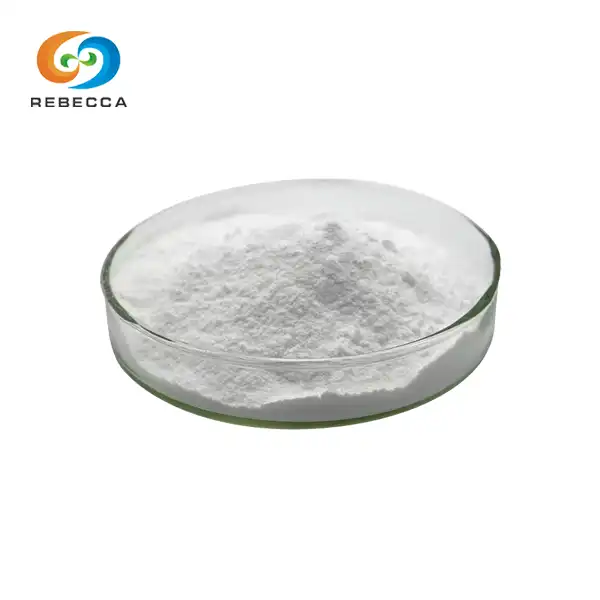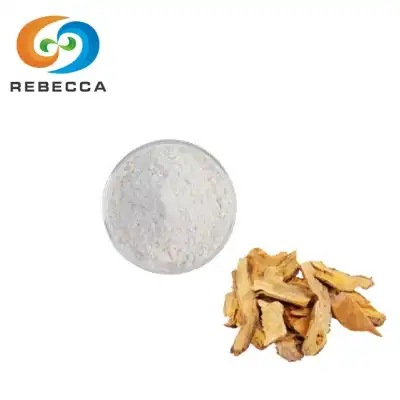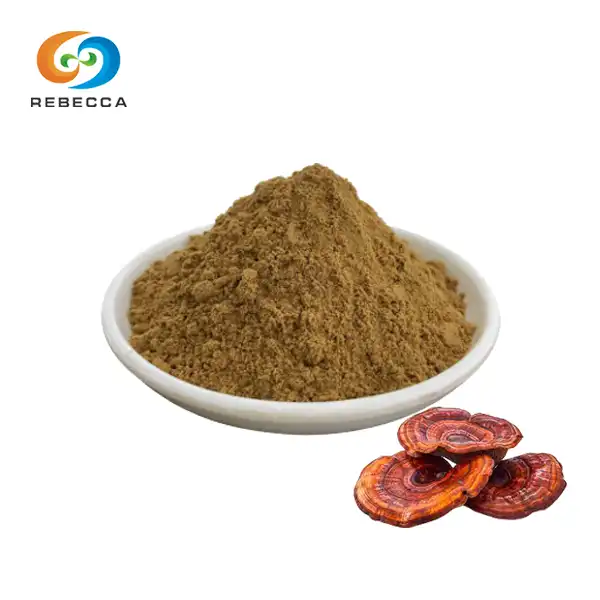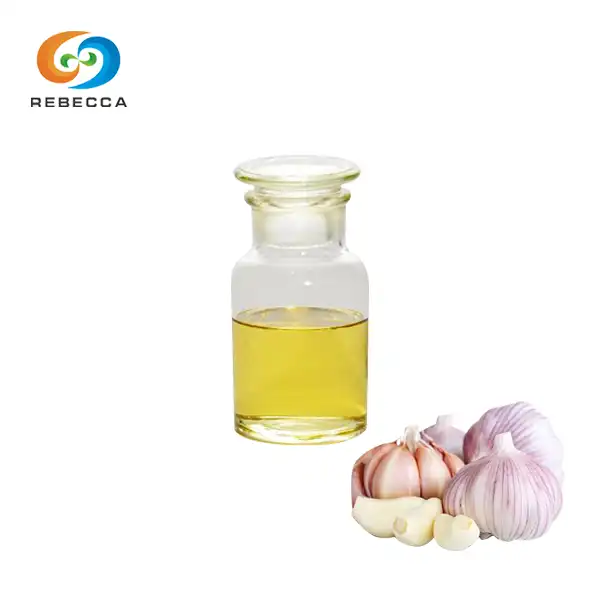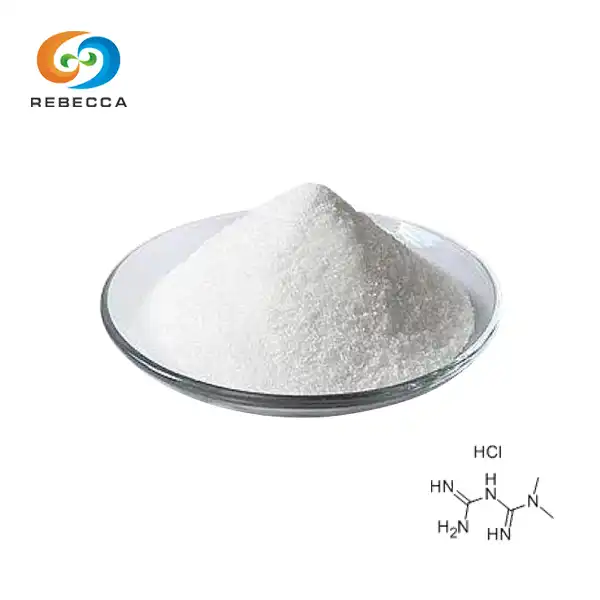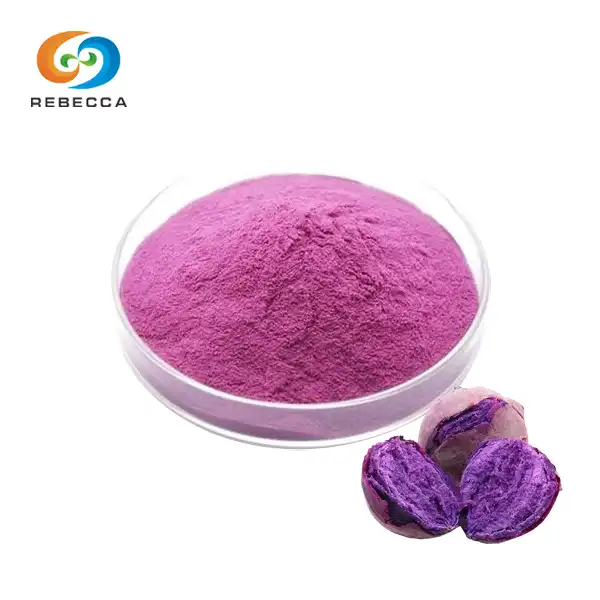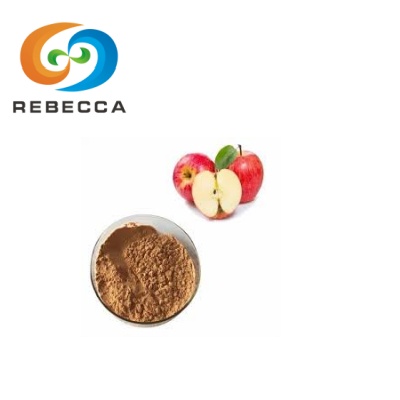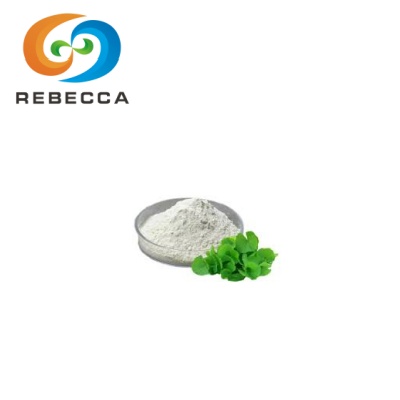Which B12 is better, methylcobalamin or cyanocobalamin?
When you go to a drugstore or look online for vitamin B12 pills, there are so many options that it may be hard to choose. There are two main types of vitamin B12 on the shelves: methylcobalamin and Cyanocobalamin (vitamin B12). Every bottle promises more energy, a better memory, and greater health. But which one really works?
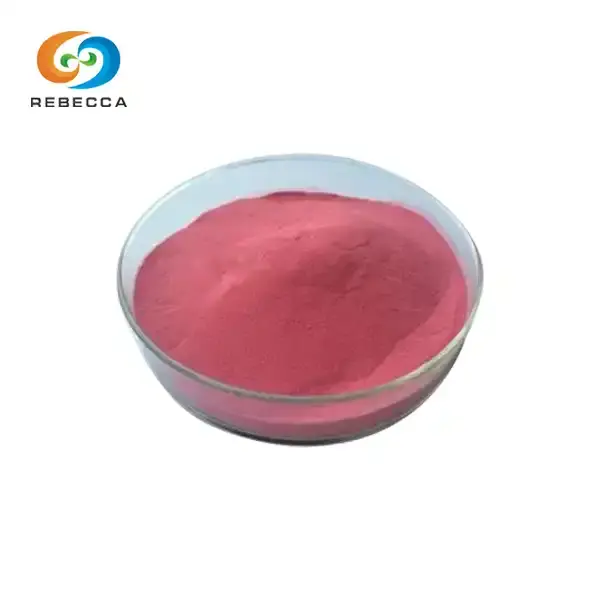
Vitamin B12 Powder
1. Product Name:Vitamin B12 (Cyanocobalamin)
2. CAS No.:68-19-9
3. Specification: 99%
Chemical Differences Between Methylcobalamin and Cyanocobalamin
Methylcobalamin and cyanocobalamin may seem the same at first. Both have cobalt in the middle, which is encircled by a complicated ring structure. The most important distinction is what is attached to that cobalt atom. Methylcobalamin has a methyl group (CH3), whereas cyanocobalamin has a cyanide molecule. Yes, cyanide is present, but only in very small amounts that don't represent a health danger.
This change in structure changes how your body processes each shape. Cyanocobalamin is the most stable type of B12, even though it has cyanide in it. It is better at withstanding changes in heat, light, and pH than its equivalent. This is why manufacturers like it. Since the 1940s, drug firms have been making cyanocobalamin (vitamin B12) pills, which have been shown to be safe for decades.
Your body naturally makes methylcobalamin. This is the form that your cells really employ for different metabolic activities. Some say this makes it better, why not skip the converting step? But this natural shape has its pros and cons. Light quickly breaks down methylcobalamin. It becomes hard to store. If you don't handle the product correctly, it could not have the strength that is mentioned on the label.
Cyanocobalamin (vitamin B12) does something fascinating to your liver. First, it takes away the cyanide group, which is safely removed from the body. Then it adds either a methyl group or an adenosyl group, which makes the active forms your body requires. Most individuals can do this conversion quickly and easily. Research indicates that healthy persons metabolize cyanocobalamin as efficiently as ingesting methylcobalamin directly.
The fact that cyanocobalamin (vitamin B12) is stable is useful. It stays strong longer, is cheaper to make, and doesn't need as strict storage conditions. Because of these things, it is often used in fortified meals and regular supplements. Cyanocobalamin is the kind of B12 that the World Health Organization usually advises.

Absorption Rates and Bioavailability Comparison
There are several processes between taking a B12 supplement and the cells taking it in. Your stomach acid initially breaks down the molecules that carry B12. After then, a protein called intrinsic factor sticks to the vitamin. This combination goes to the small intestine, where specific receptors help it be absorbed. This is the same route that both methylcobalamin and cyanocobalamin take.
Research that compares absorption rates gives startling findings. A research from 2015 that was published in the European Journal of Clinical Nutrition indicated that when taken by mouth, the two formulations had the same bioavailability. No matter what form they were in, participants absorbed around 1–2% of high-dose vitamins. The intrinsic factor system becomes full at low dosages, which is why the absorption rate is so low.
But intramuscular injections give a different tale. Healthcare professionals commonly give people B12 injections if they have a significant deficit or trouble absorbing it. Cyanocobalamin (vitamin B12) shows better retention here. The liver stores it better, so the body has reserves that last longer. Methylcobalamin injections work right away, although they leave the body faster via urine.
People are starting to use sublingual pills instead of needles more and more. Companies say that they dissolve beneath your tongue and don't go through your digestive system. Compared to conventional tablets, there is some scientific evidence that absorption is better. It's interesting that the way you get B12 is more important than the form it comes in. A well-manufactured sublingual cyanocobalamin product frequently works better than a badly constructed methylcobalamin product.
Absorption is greatly affected by individual circumstances, no matter what type of B12 is used. As you become older, your stomach produces less acid, which makes it harder for you to absorb nutrients. Some drugs, such metformin and proton pump inhibitors, make it harder for the body to absorb B12. Digestive diseases like Crohn's disease or celiac disease may make it very hard to absorb nutrients. In these situations, the decision between methylcobalamin and cyanocobalamin (vitamin B12) is less significant than guaranteeing sufficient supplementation via suitable methods.
Blood testing show fascinating patterns. When you take cyanocobalamin, your serum B12 levels go up in a predictable way and stay high for longer. Methylcobalamin generates a faster rise at first, but it also falls faster. This change has an effect on dosage regimens. You may need to take methylcobalamin every day, while cyanocobalamin could function just as well with fewer frequent doses.
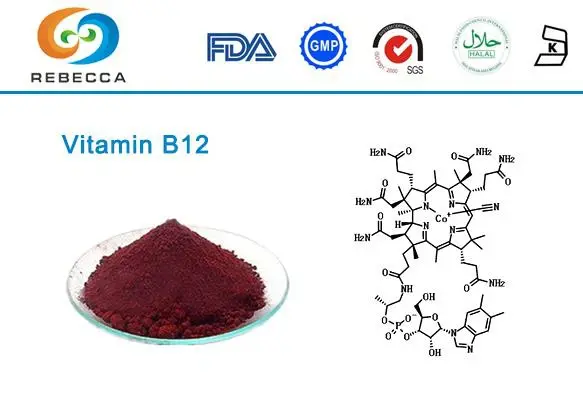
Clinical Applications and Health Benefits
Doctors provide vitamin B12 to people for more than just a lack of it. Getting enough B12 may typically help with neurological issues. Patients say they have greater balance, less tingling, and better brain function. Research investigating the efficacy of various treatments for neurological disorders produces inconclusive results. Some studies indicate that methylcobalamin may provide modest benefits for nerve regeneration, especially in cases of diabetic neuropathy.
Energy production represents B12's most recognized benefit. The vitamin helps convert food into glucose, fueling cellular processes. Deficiency causes profound fatigue that sleep cannot cure. Both forms effectively restore energy levels when deficiency exists. Marketing claims suggesting one form provides superior energy boosts lack scientific support. If you're not deficient, neither form will enhance your energy beyond normal levels.
The health of your heart and blood vessels is intimately linked to your B12 levels. The vitamin helps keep homocysteine levels in check. Homocysteine is an amino acid that may cause heart disease when it becomes too high. Studies consistently demonstrate that both cyanocobalamin and methylcobalamin successfully reduce homocysteine levels. A meta-analysis of 12 research revealed no significant difference between the forms for cardiovascular protection.
Recently, mental health apps have gotten a lot of attention. Sometimes, not getting enough B12 might make you depressed or anxious. Fixing the deficiency may make you feel better, but B12 alone isn't a cure for mental health problems. Researchers in Japan have looked at using large doses of methylcobalamin to treat sleep-wake rhythm problems. These trials seem good, but they employed amounts that were far higher than what most supplements contain, and the findings haven't been repeated with cyanocobalamin.
Pregnant women need to be treated differently. When a pregnant woman doesn't get enough B12, her baby is more likely to have neural tube abnormalities and developmental delays. Cyanocobalamin (vitamin B12) included in most prenatal supplements since it is stable and has been shown to be safe. The quantity of cyanide that comes out at normal dosages is not dangerous for either the mother or the infant. Some practitioners suggest methylcobalamin for women with MTHFR gene mutations, while data supporting this approach is still limited.
Elderly populations face unique challenges. Age-related changes in digestion reduce B12 absorption from food. Supplementation becomes increasingly important after age 50. The Institute of Medicine recommends that older adults obtain most of their B12 from supplements or fortified foods. They don't specify a preferred form, as both work effectively when absorption pathways function properly.

Cyanocobalamin (Vitamin B12) Supplier: Rebecca Bio-Tech
After looking at the research, many doctors and supplement makers pick cyanocobalamin because it works, is stable, and is cheap. It is a great option for B12 supplementation since it has decades of safety evidence and always high quality. The source is just as important as the form when it comes to vitamins and minerals. If you're a supplement maker searching for reputable raw materials or a company looking for high-quality vitamin components, this is true.
Shaanxi Rebecca Bio-Tech produces pharmaceutical-grade Vitamin B12 (Cyanocobalamin) with 99% purity, which has been confirmed by HPLC testing. Our factory has three manufacturing lines that can make more than 500 metric tons of goods each year. This guarantees a steady supply for the worldwide health, pharmaceutical, beverage, and cosmetics sectors. We make cyanocobalamin that satisfies strict international quality requirements and has a CAS No. 68-19-9 certification.< /p>
We know more than just how to make things. Rebecca Bio-Tech puts a lot of money into research and development because they know that good B12 supplements may make a big difference in health. We've improved our extraction and purification methods so that cyanocobalamin stays strong for as long as it is on the shelf. This stability is particularly useful for firms that make items that will be sold throughout the world, where storage conditions might be different.
The pharmaceutical sector needs accuracy, and our testing procedures go above and above what is required. Each batch is thoroughly tested to make sure it is free of impurities and to check its strength. Because of this dedication to quality, Rebecca Bio-Tech is now a reliable supplier for businesses that provide anything from simple supplements to specialist medicinal formulations. For further information on comprehensive requirements, special formulas, or bulk buying, please email our technical team at information@sxrebecca.com.
References
· Paul, C., & Brady, D. M. (2017). Comparative Bioavailability and Utilization of Particular Forms of B12 Supplements. Integrative Medicine: A Clinician's Journal, 16(1), 42-49.
· Obeid, R., Fedosov, S. N., & Nexo, E. (2015). Cobalamin coenzyme forms are not likely to be superior to cyano- and hydroxyl-cobalamin in prevention or treatment of cobalamin deficiency. European Journal of Clinical Nutrition, 69(7), 803-808.
· Institute of Medicine. (1998). Dietary Reference Intakes for Thiamin, Riboflavin, Niacin, Vitamin B6, Folate, Vitamin B12, Pantothenic Acid, Biotin, and Choline. Washington, DC: The National Academies Press.
· Thakkar, K., & Billa, G. (2015). Treatment of vitamin B12 deficiency–methylcobalamine? Cyancobalamine? Hydroxocobalamin?—clearing the confusion. European Journal of Clinical Nutrition, 69(1), 1-2.
· Wolffenbuttel, B. H., Wouters, H. J., Heiner-Fokkema, M. R., & van der Klauw, M. M. (2019). The Many Faces of Cobalamin (Vitamin B12) Deficiency. Mayo Clinic Proceedings: Innovations, Quality & Outcomes, 3(2), 200-214.
